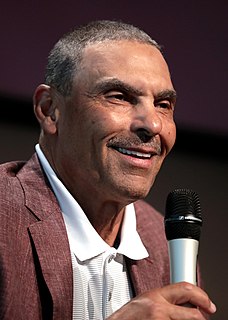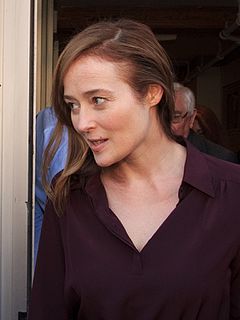A Quote by Marshall B. Rosenberg
I wouldn't expect someone who's been injured to hear my side until they felt that I had fully understood the depth of their pain.
Related Quotes
At that moment a very good thing was happening to her. Four good things had happened to her, in fact, since she came to Misselthwaite Manor. She had felt as if she had understood a robin and that he had understood her; she had run in the wind until her blood had grown warm; she had been healthily hungry for the first time in her life; and she had found out what it was to be sorry for someone.
Some labor this side of the veil, others on the other side of the veil. If we tarry here we expect to labor in the cause of salvation and if we go hence we expect to continue our work until the coming of the Son of Man. The only difference is, while we are here we are subject to pain and sorrow, while they on the other side are free from affliction of every kind.
I felt like someone had ripped my heart out and tossed it across the other side of the room. There was a burning, agonizing pain in my chest, and I had no idea how it could ever be filled. It was one thing to accept that I couldn't have Dimitri. It was something entirely different to realize someone else could.
The thing that would probably surprise most people was that Dr. Martin Luther King was a very reluctant leader. He felt very shocked at times that he had been chosen for this path, but he also understood that he was chosen for this path. He had several moments of acute doubt as to if he was up for the task - when people were injured in the protests he took it very personally, let alone when they were killed.
When I started to paint, I painted children because I just felt that I wanted to take their side. What always upset me was how children are getting abused simply because they are physically weaker and not capable of defending themselves - how they get raped, enslaved and killed. I never understood why some people seemed to have fun causing pain to someone smaller.
A child blind from birth doesn't even know he's blind until someone tells him. Even then he has only the most academic idea of what blindness is; only the formerly sighted have a real grip on the thing. Ben Hanscom had no sense of being lonely because he had never been anything but. If the condition had been new, or more localized, he might have understood, but loneliness both encompassed his life and overreached it.
Personally, I never understood the power of having books written about your experience - whatever that experience may be - until I wrote one and started hearing from teens. I just got an email from a reader who said that "Thirteen Reasons Why" was the first time they had felt understood. A book shouldn't be anybody's first time feeling understood and that's where censorship bothers me. These books need to be out there.
I change many things, discard others, and try again and again until I am satisfied; then, in my head, I being to elaborate the work in its breadth, its narrowness, its height, its depth...I hear and see the image in front of me from every angle as if it had been cast and only the labour of writing it down remains.
It was a part of myself that was my enemy; I still had a childish illusion that the flesh on my own bones was somehow unique and precious to the universe, in some obscure corner of my mind I wanted the others to love me and make exceptions for me simply because I felt heat and cold, pain and loneliness as they did. Now this was gone once and for all, and I understood there were no exceptions and on one was invulnerable, we all had to share the same conditions and in the end this was simply mortality, the mortality of things as well as ourselves. After that I didn't expect anybody to love me.
There's never been a game plan, and I suppose I've had an uneasy relationship with my ambition. Someone who had been in my year at drama school once said to me that I was terrifyingly ambitious back then. Which was not at all what I felt at the time - I felt paralysed with shyness, though that evaporated.






































